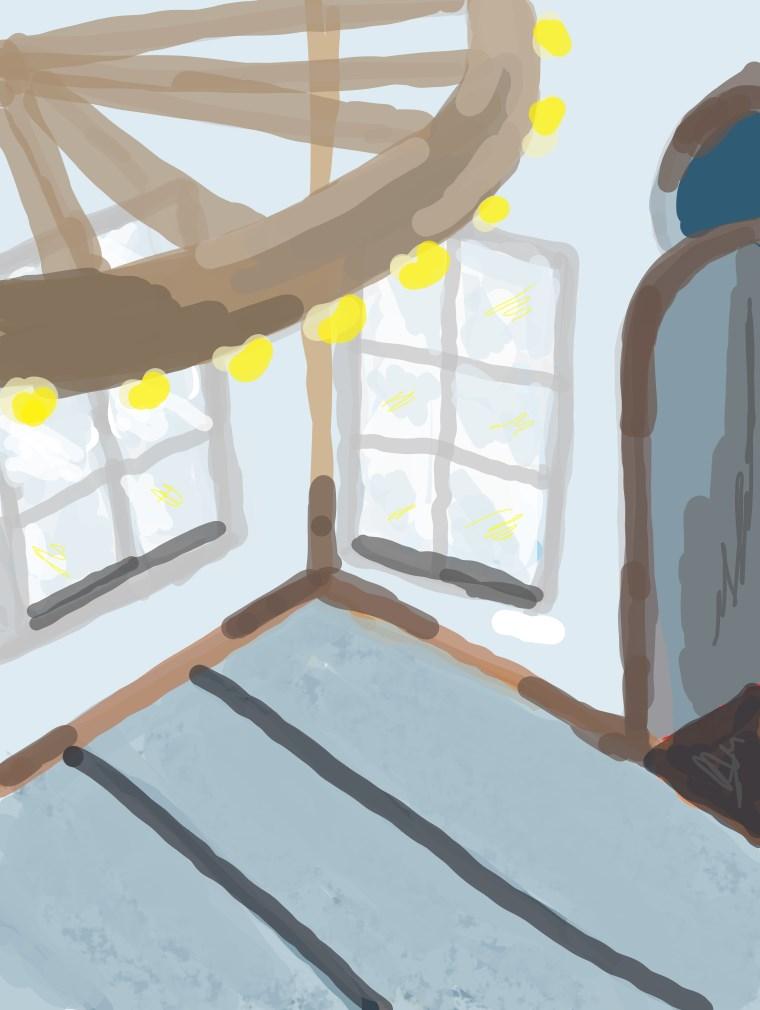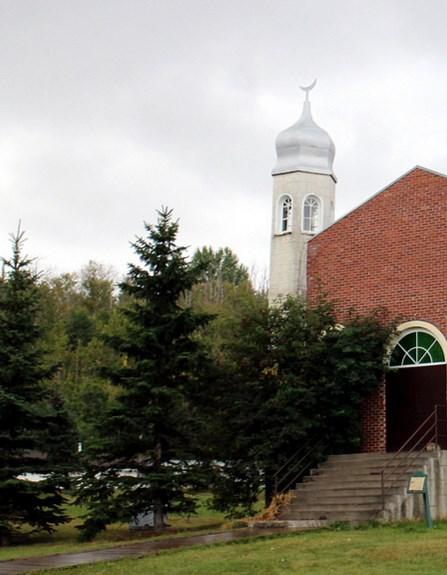
8 minute read
Racism From Within
By: Rahamatullah Siddique, Vancouver, British Columbia
We are living in a time where minorities are finally being validated after years of ridicule and social annexation. We see different groups advocating for movements like Indigenous Rights, or Black Lives Matter (BLM), which is phenomenal after systematic racism has impacted these groups for years.
Advertisement
But here lies the real question, as our people, those of the Islamic faith, run to support these movements, what are we doing from within our community? Before I continue, I do want to state that my views are in no way meant to discourage social activism, rather, I'd like us all to use the same enthusiasm to make a difference and start from within our communities.
Whether we want to accept it or not, racism is deeply rooted in our communities. Ask the average Muslim, “What does your faith say about discrimination or racism?” you will get answers like: “Racism is not Islamic!”

Photo by Michael Marcagi on Unsplash
“Allah created Islam to demolish racism” And finally the most famous hadith from the last sermon delivered by Prophet Muhammad (SAW) “ There is no superiority of an Arab over a non-Arab, or of a non-Arab over an Arab, and no superiority of a white person over a black person or of a black person over a white person, except on the basis of personal piety and righteousness.”
But here lies my question. How many of us TRULY follow this? I will present two scenarios here, the first from within our own community - Muslim to Muslim, and second with regards to non Muslims.
M U S L I M T O M U S L I M
From personal experience, via helping numerous youth and young adults through their experiences, I have witnessed that we, Muslims, have a larger problem of discrimination than we want to accept. How is this possible, when speaking from a faith point of view - we should be against it? Our people will first divide our communities into two groups Arab speakers, vs non-Arab speakers. Sadly, those who speak Arabic sometimes believe that they are more knowledgeable about the faith due to the mere fact that they are Arabs. Or they believe that non-Arab speakers can never achieve the same connection with the faith because of the language barrier. This leads to the discrimination against non Arabs.
So is there logic behind this? Maybe? I mean at the end of the day there is a whole new dimension of understanding we can gain of our faith if we all spoke/ read/and studied classical Fus-ha Arabic. If we look back to the time where the Quran was revealed, it was meant to challenge the native speakers, who were masters in their language, to bring a verse like it. No one could speak as eloquently as the words of the Qur’an. But the Qur’an also says about itself: 'And We have indeed made the Quran easy to understand and remember, then is there any that will remember (or receive admonition)? ' (54:17). Allah sent our faith as a message to all mankind. Not knowing how to speak the language does not mean you cannot achieve a strong connection with your faith. We see this with the Hadith that states:
“The example of those who recite the Quran and memorize it is that of one who is with the ‘righteous and noble scribes’ (80:15); and the example of one who recites the Quran with great difficulty is that of one who receives a double reward.” Prophet Muhammad (SAW) - Reported by Aisha (RA)
We are encouraged to read and try to achieve a level of understanding. Then, we are also encouraged to seek help from those trained in the religion to guide us on our way. The resources we have available enable us to gain knowledge of our faith. Next, I mentioned Classical Fus-ha Arabic above - the reality is, a small percentage of Arab speaking individuals actually have this level of linguistics. Majority of those who are quick to pass judgments often speak a dialect, and can not even read and write the language in proper form. So how is that any different from the person who is a non-Arab speaker.
One thing to note - one of the items that we will be judged on is how we practiced our faith, claiming ignorance is not considered to be an excuse. We all have an obligation to learn. The first word revealed was “IQRA” or “READ!”, showing us the beginning trend of Allah asking us to obtain knowledge. So for those of us who have more training or knowledge than others in the Arabic language, you are carrying a big burden, you are one step ahead of the rest of us. Are you living up to your obligations? May Allah protect us all.
The next part I would like to address here is cultural racism this can be based on culture, race, country, or even across towns and families. We as a community love to deny that this exists, but let's face it, it does. If we look at countries like Lebanon or Pakistan and India there is racism towards peoples from different parts of the countries -sometimes it's even based on the city!
Furthermore, Muslims are judged based on skin color. Every single nation has a name for a Muslim that is black, and it's usually a derogatory phrase. So here's where I ask - we have an Example of Bilal (RA), one of the most respected Muslims of the prophets' time, who was black, and our communities look up to him. But how would he be respected in today's world? I will never forget Sh. Fayaz’s sermon at Akram Jooma in Calgary, and I’m paraphrasing here, when he said that we all look up to Bilal, but how many of us would turn a man away from marrying our daughters if he looked like Bilal?
Between all these levels - there lies a problem. We, the Ummah of Muhammad, who was commanded to eliminate all class levels and racial barriers, are sometimes the worse culprits.
We need to start realizing that we are all humans to begin with, and then that we are all Muslims following that. Someone's background should have no impact on how they are viewed as a person. Heck, we are not even allowed to judge a person based on their past sins, so how can we even attempt to justify it based on their skin, country of origin, or heritage.
We also have a huge problem with acceptance of multicultural marriages. In fact, there is a large majority who outright reject it. Why? To keep the bloodline clean? To prevent conflict because of different cultures? Give me a break. That's absurd. The fact is there is no reason to prohibit this. A Muslim is a Muslim. Full stop. Cultural differences are not a reason to justify any sort of discrimination - they are CULTURAL not ISLAMIC. And when push comes to shove, Islamic values are our core values. Now this can lead into a completely different topic - based on the issues we Muslims have with differing schools of thoughts and sects of our faith. That is honestly a topic on its own, and I will save it for another issue.
M U S L I M T O N O N M U S L I M
In my humble opinion, our community does have a huge problem with our quick judgments towards non-Muslims. I have witnessed parents inform children “do not befriend a non-Muslim, it is haram”. I have witnessed people say things like “ah it doesn't matter how we treat him, he is a kuffar and is going to hell anyway”.
This is beyond dangerous. Allah informed us that in reality, we have no right to judge where a person will be for eternity, it's for Him to decide. I have literally witnessed Muslims tell others that since we are the chosen ones, we are going to Jannah. But last time I checked, this isn't a monopoly game, and I don't have a get out of Jahannam free card in my angelic wallet.
WE DO NOT HAVE THE RIGHT TO JUDGE ANOTHER. Full stop. It's Allah’s decree. How do we know that that person we befriend will not become Muslim later on? How do we know that that person is damned to the hellfire and WE ARE NOT? We don’t. As Muslims, we have the obligation to treat every living soul equally as a human being. Our faith even tells us how to treat criminals justly, yet people take it upon themselves to instantly judge others.
This commentary is based on true events, experiences, and interactions. I have to say that in a world of social justice movements, we the Muslims, have a big task. We truly need to lead by example, and demonstrate what our faith says about racism and discrimination. We need to start from within our own communities. If we spend time to build good values from within our communities, then we truly are practicing what we are preaching when we join others’ movements. I encourage the youth of today to break away from the cultural baggage our elders are holding from the homeland while holding as true as ever to the Islamic values that unite us all. We live in a cultural mosaic, and our faith encourages us to maintain diversity alongside maintaining our beliefs and practices.











